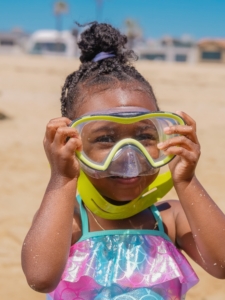Dive Maui For the First Time: Remember These Things!
If you’re about to take the plunge and go on your first scuba diving adventure in Maui, you’re in for an unforgettable experience. However, before you embark on this thrilling underwater journey, there are a few key things to remember to ensure a safe and enjoyable dive. From understanding the basics of scuba diving to knowing what to expect on your first dive, and being familiar with essential gear and how to use it, this guide will help you prepare for your first time dive Maui.
Understanding the Basics of Scuba Diving
Embarking on your first scuba diving journey is an exciting venture, especially in the enchanting waters of Maui. To fully embrace this adventure, a solid grasp of scuba diving fundamentals is essential. Delving into the aquatic realm requires more than just enthusiasm; it necessitates a comprehensive understanding of the key principles that govern this unique activity. At the heart of scuba diving is the concept of buoyancy – the ability to float, sink, or remain suspended in water. Mastering buoyancy control is critical as it affects not only your ease of movement underwater but also the conservation of your energy and air supply. Another fundamental aspect is equalization. As you descend, water pressure increases, and you must learn to equalize the pressure in air-filled spaces, such as your ears and mask, to avoid discomfort or injury. Decompression sickness, often referred to as “the bends,” is another crucial concept to understand. This condition can occur if you ascend too quickly, allowing nitrogen bubbles to form in your bloodstream or tissues. Learning about safe ascent rates and adhering to them is vital for preventing this potentially serious condition. Researching and familiarizing yourself with these concepts beforehand can significantly enhance your diving experience. It’s not only about the thrill of exploring underwater; it’s about doing so safely and with respect for the marine environment. Additionally, a foundational knowledge of scuba diving helps in communicating more effectively with your instructor and dive buddies, ensuring that everyone is on the same page regarding safety protocols and dive plans. Diving into the world of scuba with a well-rounded understanding of its basics sets the stage for a rewarding and safe experience. As you prepare to explore the wonders of Maui’s underwater landscapes, keeping these principles in mind will help you navigate the depths with confidence and ease.
spaces, such as your ears and mask, to avoid discomfort or injury. Decompression sickness, often referred to as “the bends,” is another crucial concept to understand. This condition can occur if you ascend too quickly, allowing nitrogen bubbles to form in your bloodstream or tissues. Learning about safe ascent rates and adhering to them is vital for preventing this potentially serious condition. Researching and familiarizing yourself with these concepts beforehand can significantly enhance your diving experience. It’s not only about the thrill of exploring underwater; it’s about doing so safely and with respect for the marine environment. Additionally, a foundational knowledge of scuba diving helps in communicating more effectively with your instructor and dive buddies, ensuring that everyone is on the same page regarding safety protocols and dive plans. Diving into the world of scuba with a well-rounded understanding of its basics sets the stage for a rewarding and safe experience. As you prepare to explore the wonders of Maui’s underwater landscapes, keeping these principles in mind will help you navigate the depths with confidence and ease.
What to Expect On Your First Dive
Stepping into the waters of Maui for your initial scuba diving endeavor can be both exhilarating and a bit daunting. The anticipation of what lies beneath the surface stirs a blend of emotions, but knowing what lies ahead can ease the butterflies in your stomach. As you submerge, the vibrant hues of the coral reefs welcome you into an alien yet mesmerizing world. These ecosystems are teeming with life, from the flutter of tiny, colorful fish darting around the corals to the graceful glide of sea turtles that might pass by your side. The sights you’ll encounter are unlike anything on land, offering a unique spectacle of nature’s beauty and diversity. Your breath will become your rhythm underwater, a slow and deliberate metronome guiding your exploration. It’s crucial to focus on breathing steadily through your regulator, a practice that not only conserves air but also helps in maintaining buoyancy and calmness. This rhythmic breathing is a core aspect of scuba diving, essential for managing your movement and comfort as you navigate the underwater landscape. Expect to stay close to your dive instructor, who will lead the way and point out fascinating sights along your journey. Their expertise is invaluable, providing not only guidance but also ensuring your safety and helping you interpret the environment around you. You’ll learn to communicate underwater through hand signals, an essential skill for expressing needs and sharing discoveries with your dive group. Moreover, it’s important to remember that each dive is a step into a delicate, living world. The privilege of observing this underwater realm comes with the responsibility to protect it. Avoid touching the coral or disturbing the marine life, as even small actions can have significant impacts on these ecosystems. Your first dive in Maui is more than just a dive; it’s an introduction to a new world, a different perspective on life, and an experience that will likely ignite a lifelong passion for exploring the depths. As you ascend back to the surface, the memories of what you’ve seen and the sensations of floating in this underwater landscape will stay with you, beckoning you to dive again.
Essential Gear and How to Use It
Embarking on your inaugural dive into Maui’s underwater splendor necessitates a comfortable acquaintance with the scuba gear you’ll be donning. This ensemble plays a pivotal role in your underwater adventure, comprising items such as a scuba mask, snorkel, fins, wetsuit, buoyancy control device (BCD), and regulator, each serving a specific function to aid your dive. Your mask offers a clear window to the marine life, while the snorkel allows you to breathe at the surface without wasting tank air. Fins facilitate efficient movement through the water, and the wetsuit helps maintain body warmth in varying temperatures. The BCD enables precise control over your buoyancy, and the regulator is your lifeline, delivering air from your tank to you. Prior to the dive, you’ll be guided through a detailed briefing on the correct utilization of this equipment. It’s imperative to ensure everything fits well and feels comfortable—ill-fitting gear can detract from your experience and pose safety risks. Your instructor will demonstrate how to adjust your BCD for optimal buoyancy, clear water from your mask, and regulate your breathing, among other essential skills. Care for your equipment doesn’t stop at proper use; maintaining it in top condition is equally important. After your dive, rinsing the saltwater off your gear and drying it properly can extend its life and performance. Adhering to these guidelines not only promises a more enjoyable dive but also upholds the integrity and reliability of your gear, ensuring you’re poised for the multitude of dives that your future may hold.

